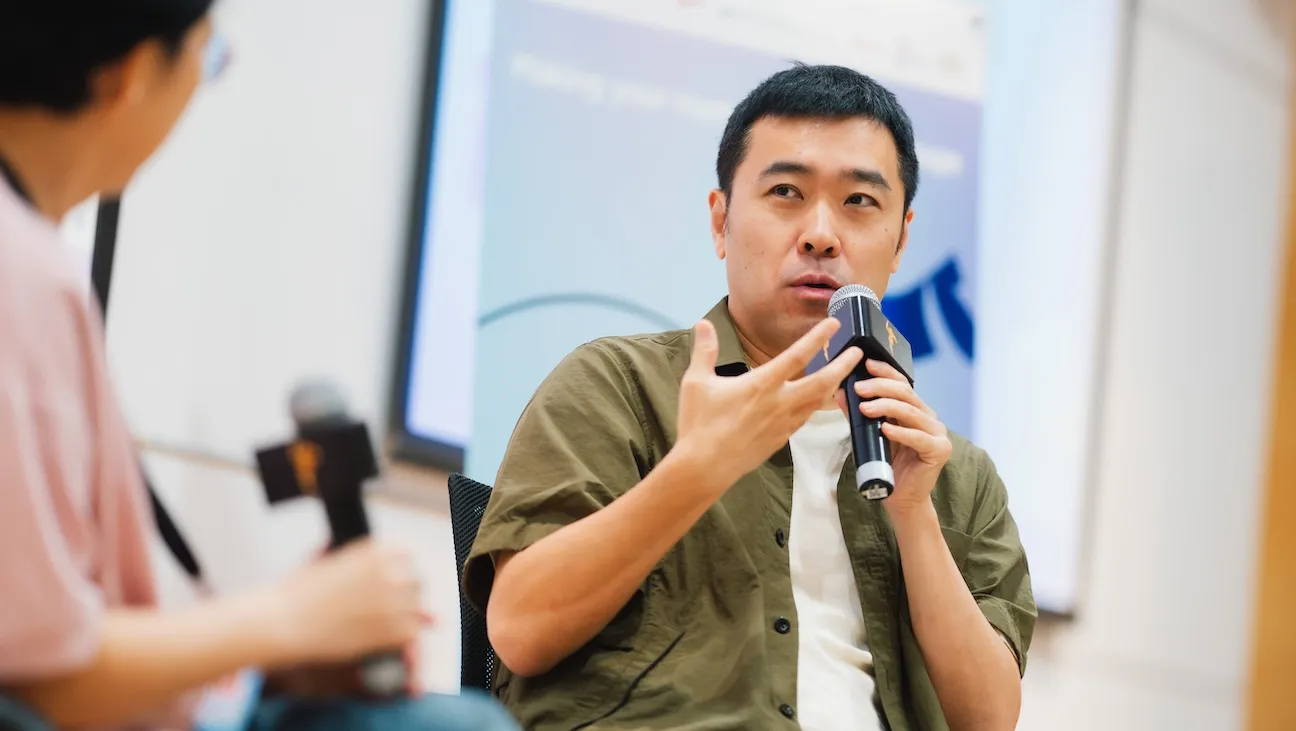
The Beijing-based sales, production and distribution company Rediance’s ever-growing global reach is being reflected — very brightly — at the 30th Busan International Film Festival this week in the shape of the Ildikó Enyedi-directed Silent Friend and the Deni Oumar Pitsaev documentary Imago.
Both carry big fest buzz with them into South Korea. Silent Friend left Venice with six awards; Imago took three home from Cannes.
They are both in keeping with the very kind of production company founder Meng Xie set himself after when Rediance was formed in 2017. Fueled by a very obvious and growing need to harness the rise of Chinese independent cinema — and its makers — Meng set out also to explore the wider filmmaking world.
And that has quite obviously crafted the one-time film curator into a go-to guy when it comes to feeling the pulse of the mainland Chinese industry, as Rediance can now safely lay claim to the likes of the Thai Palme d’Or winner Apichatpong Weerasethakul (Memoria), Portuguese maverick Miguel Gomes (Grand Tour) and the acclaimed Singaporean Anthony Chen (Wet Season and The Breaking Ice).
Ming was recently in the southern Chinese enclave of Macau, lending his thoughts and his advice to a group of aspiring creatives gathered as part of the Asian Film Awards Academy-led International Film Camp. “They asked me to talk about challenges in the China market — and even that, these days, is a challenge,” he shares. But with BIFF at that stage still looming, it seemed a good opportunity to sit down with Meng and to dig a little deeper into what’s going on within the world’s second biggest market, and where opportunities might be found
In what ways are we still witnessing the after-effects of the pandemic across the Chinese film industry?
Well one of things the market is facing now — and it’s also one of the reasons we started to do acquisitions — is that at one point the authorities also realized that because of COVID, and also the market situation and the rise of TikTok and a drop in people’s attention spans, that there was more need for content, but we don’t have that much. So things have become easier, slightly. I wouldn’t say that restrictions became much easier but just in terms of maybe the process, and also the cost compared to the past, things became a little easier because of that need.
How about what the audience wants from its movies? How has that evolved over that same period?
The audience has completely changed. That’s why you have the filmmakers from the previous generation — like Feng Xiaogang or lots of those filmmakers — I think they also have had a hard time adjusting to the current situation. I always ask: what is drawing the audience now? It’s very hard to get them to go into the cinema. They’re not going for the stars, they’re not going for just the story. They’re going for something else, something different, like Yolo [Jia Ling’s female boxing hit] last year with a feminist sort of [story]. Then a film like Italy’s There’s Still Tomorrow did very well, about $6 million. It was black and white and it had been out for quite a while but there was this strong female voice to it. People are embracing these films.
What about in terms of premium TV series? What’s happening on that side of the market?
We’re also developing a TV series. I think it’s a different kind of playground for the industry. There have been successful examples of limited TV series in China. Obviously, there has been a lot from outside, a lot of outside voices and with fascinating storytelling. Like elsewhere, filmmakers are beginning to use it as another medium or tool to tell stories. The good part, obviously, is it is not dependent on the box office. But it’s a different way of talking, a different medium, so it needs work.
Did Wong Kar-wai’s success with Blossoms Shanghai (2023) open people’s eyes to what was possible?
I think it did. People could see mature Chinese content. It’s a different type of content, and people could see how that could work. Yes, I think that’s a very good example.
What can you tell us about the short film market in China? It seems to be booming and these films are traveling to festivals. The filmmakers are being supported by the likes of the International Film Camp in Macau and this week’s Chanel X BIFF Asian Film Academy.
Lots of filmmakers are making shorts. Way more than before. And the festivals are programming them and more platforms are programming them, especially in China where there are thousands and thousands of entries to these festivals every year. When Qiu Yang won the Palme d’Or in shorts [in 2017 for A Gentle Night], people in China saw that it was a possibility. Now it seems there is [always] a Chinese film in a major festival short competition. So there were lots of people already wanting to get into filmmaking, and then saw that it had become a more affordable situation because they can do it themselves, with technology available today. When I was programming more than 10 or 15 years ago, there were a lot of very struggling independent filmmakers. But now a lot are from the middle class family, or even higher, and they’re financing their own films. There are now lots of short films in festivals, and they are supporting those filmmakers. Then you get tons of more opportunities to be spotted in programs like this one in Macau — if you have the talent.



